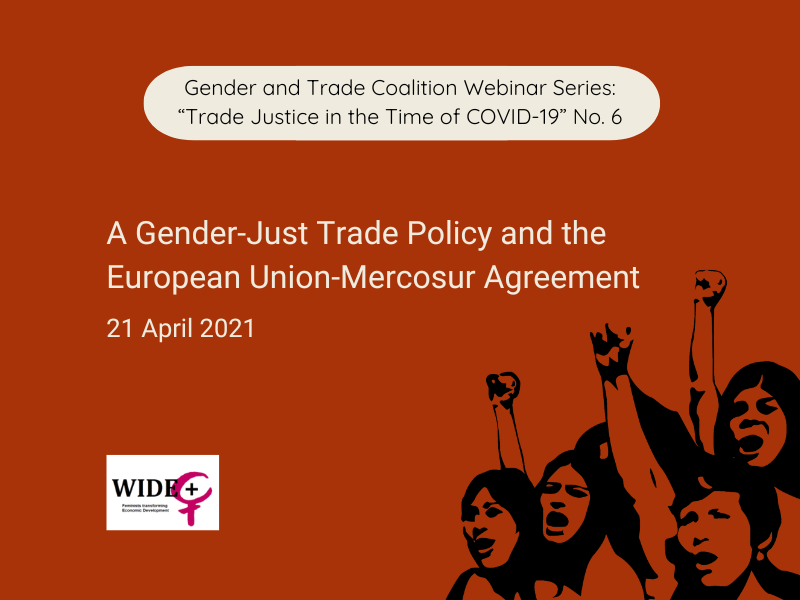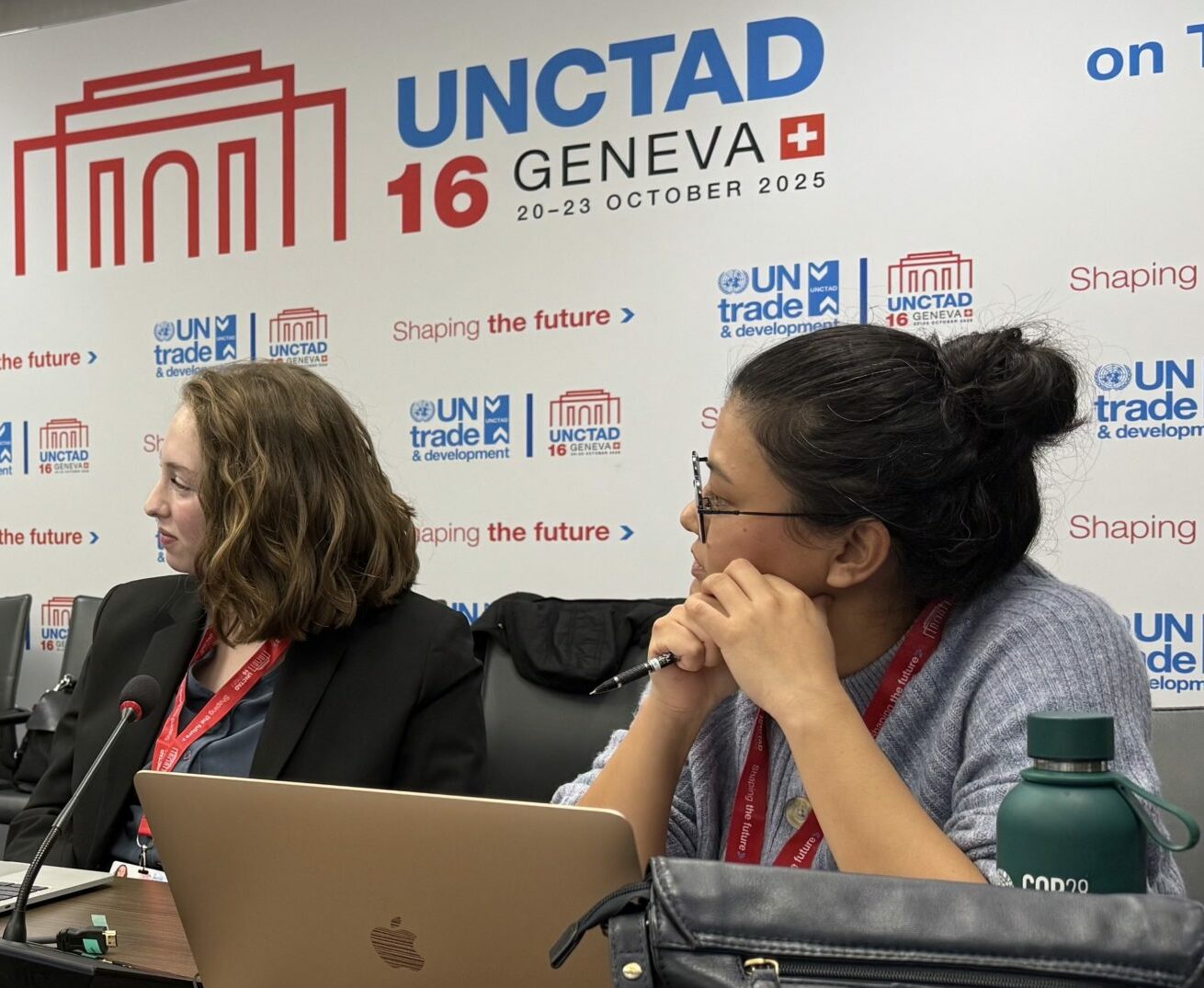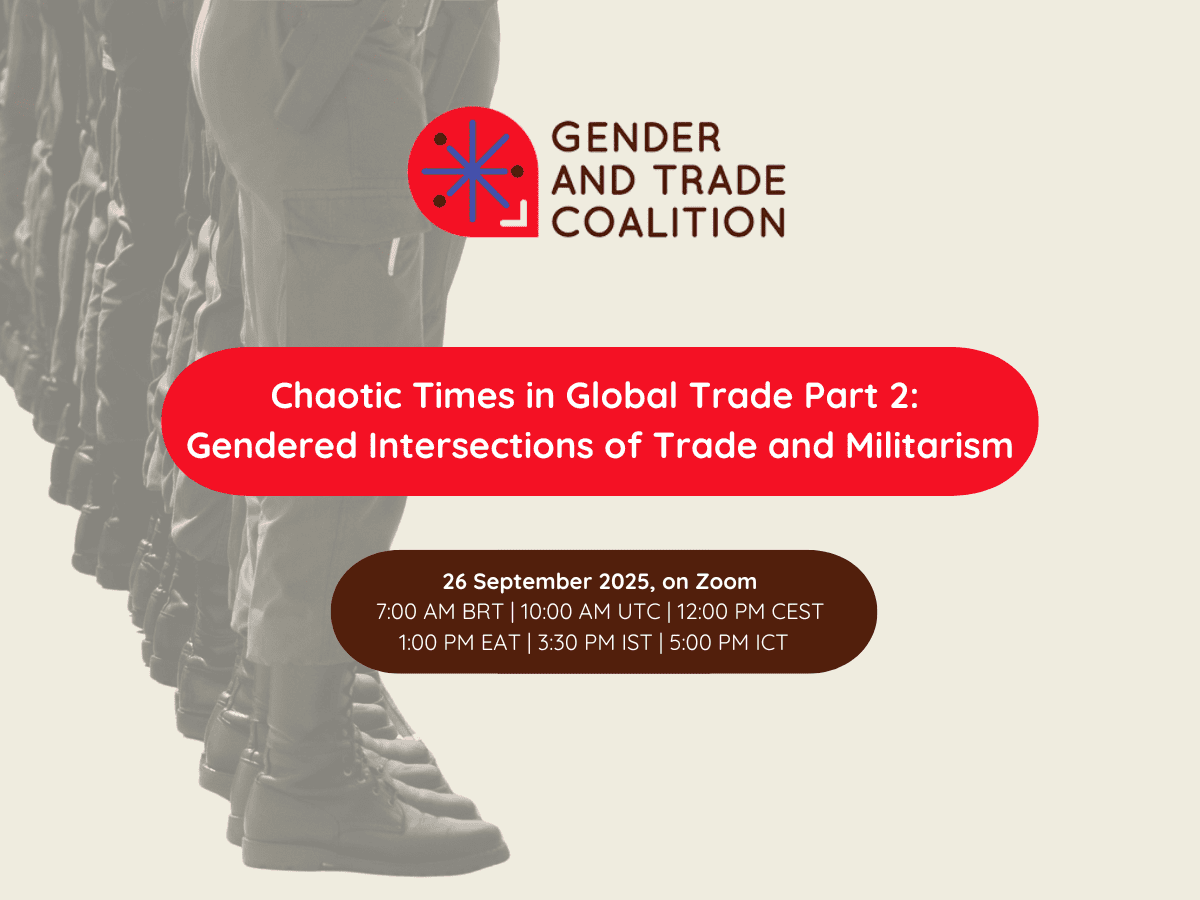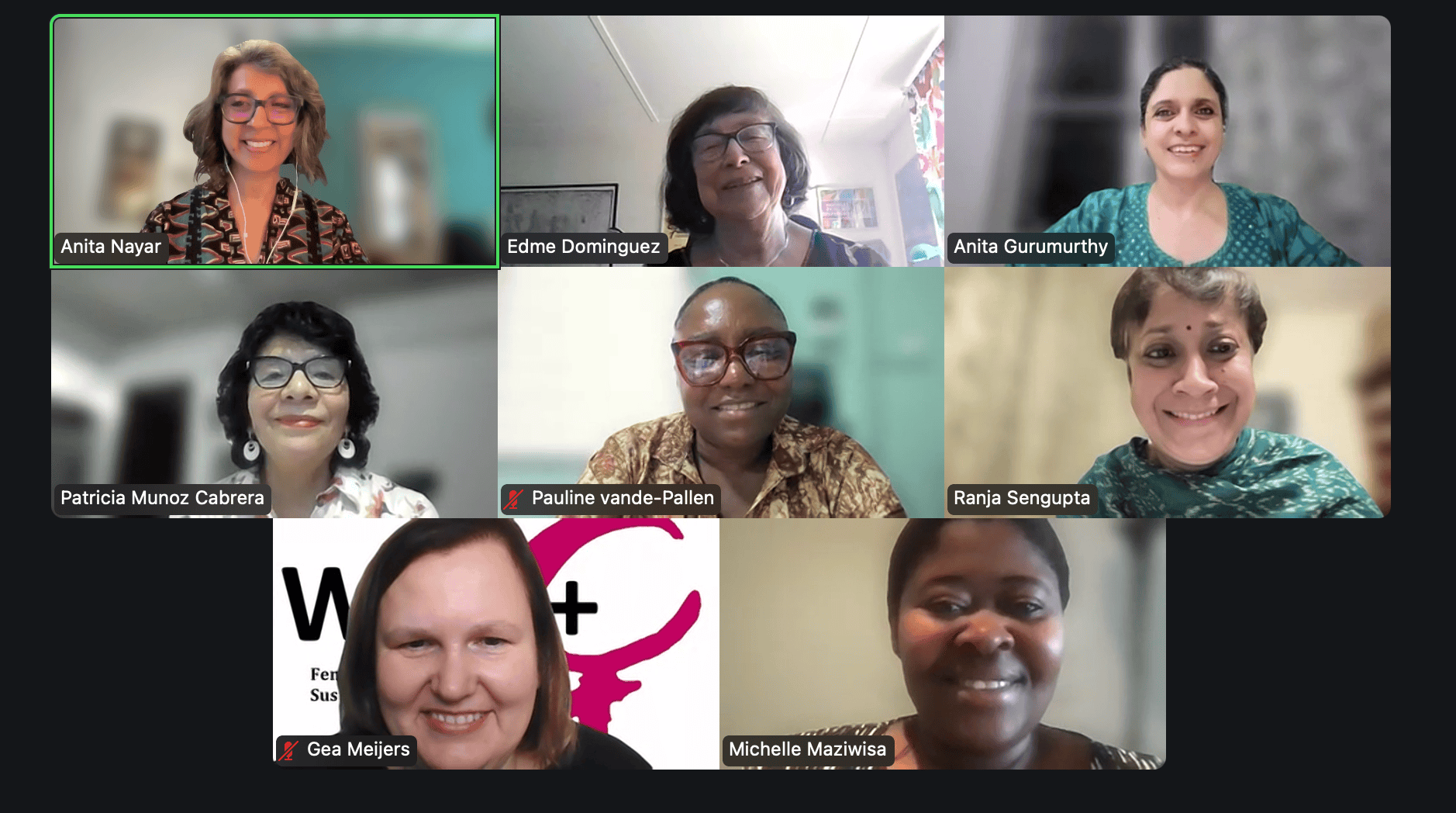The current draft of the European Union (EU)-Mercosur agreement includes the common features of a European multilateral free trade agreement, with elements that are expected to harm nature, farmers in different continents, and decent livelihoods for indigenous communities. Its impact on gender inequalities are not often discussed. This webinar reflects what a gender just trade policy would entail for the EU-Mercosur agreement and where it falls short. After a two decade long negotiation, the European Commission concluded talks with the Mercosur countries– Argentina, Brazil, Paraguay and Uruguay– into a deal that has been contested ever since by the European Parliament and several parliaments of the EU member states.
This sixth webinar in a nine-part series entitled 'Trade Justice in the Time of COVID-19' organized by the Gender and Trade Coalition (GTC) is convened by GTC member, WIDE+, and Seattle2Brussels. It is moderated by Edmé Dominguez (WIDE+; School of Global Studies, Gothenburg University, Sweden; and Gender and Development in Practice) and includes the following speakers:
- Graciela Rodriguez (Instituto Equit, Brazil);
- Bettina Müller (Powershift–Germany and member of Seattle2Brussels); and
- Alma Espino (Institute of Economics, University of the Republic, Uruguay).




